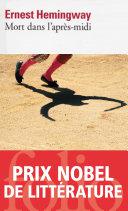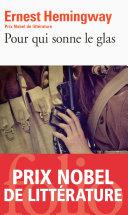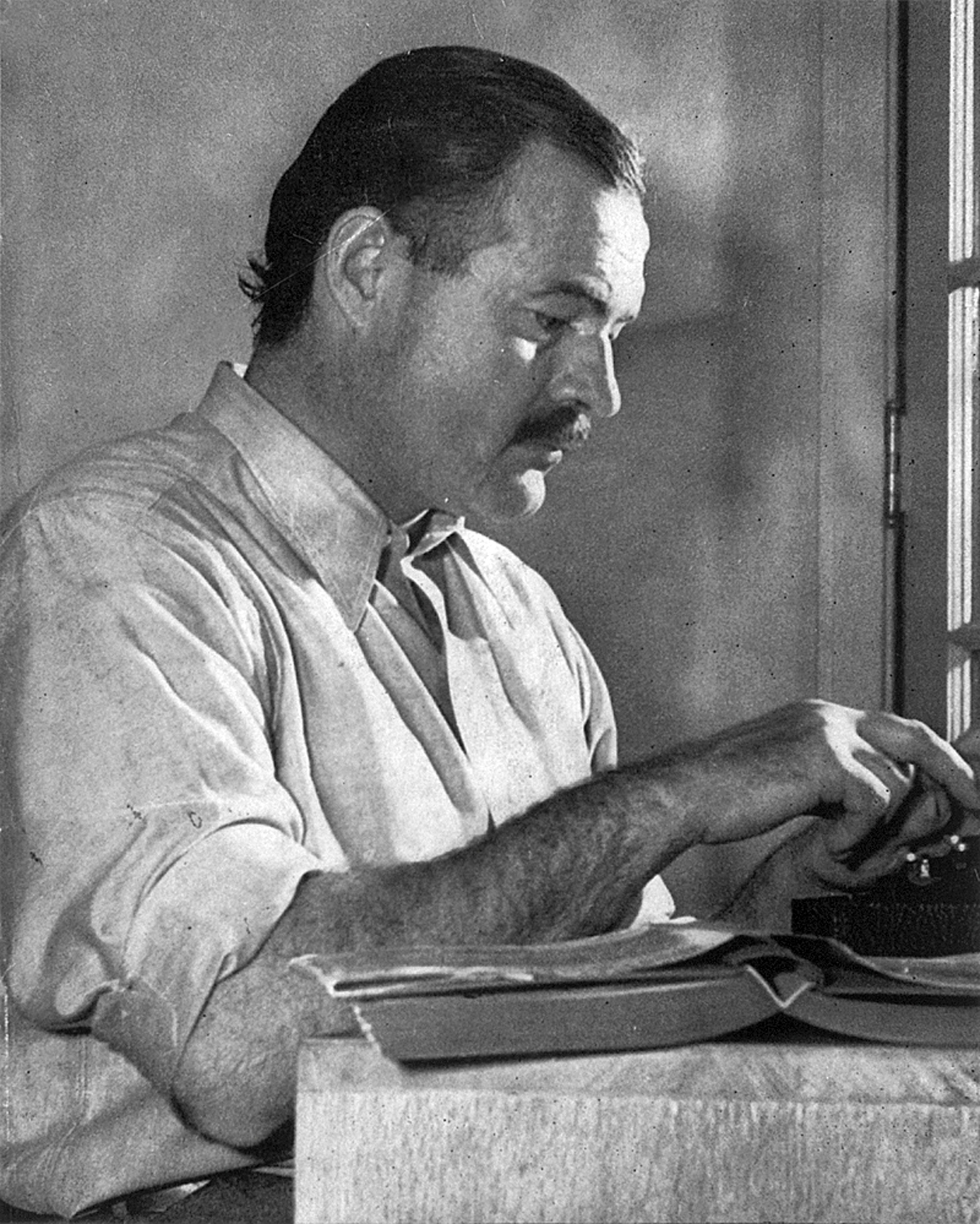Œuvres

Mort dans l'après-midi
Ernest Hemingway
Pour qui sonne le glas
Ernest Hemingway
Paris est une fête
Ernest HemingwayErnest Hemingway citations célèbres
Ernest Hemingway Citations
Le viel homme et la mer, 1952
“La mort est un remède souverain à toutes les infortunes.”
Mort dans l'après-midi, 1938
“Ça m'empêchera pas de le tuer, dit-il; tout superbe et formidable qu'il soit.”
Le viel homme et la mer, 1952
Le viel homme et la mer, 1952
“Dans tous les arts, le plaisir croît avec la connaissance que l'on a d'eux.”
Mort dans l'après-midi, 1938
Ernest Hemingway: Citations en anglais
Disputed
Source: Claimed to be from Men Without Women, but it does not appear in that work. May have originated in a 2011 blogpost by Marc Chernoff entitled 30 things to stop doing to yourself http://www.marcandangel.com/2011/12/11/30-things-to-stop-doing-to-yourself/.
“Happiness in intelligent people is the rarest thing I know.”
Marita in Ch. 11
Source: The Garden of Eden (1986)
“Cowards die a thousand deaths, but the brave only die once.”
Source: A Farewell to Arms

“Never think that war, no matter how necessary, nor how justified, is not a crime.”
Introduction to Treasury of the Free World (1946)
Source: Ernest Hemingway: A Literary Reference
Contexte: An aggressive war is the great crime against everything good in the world. A defensive war, which must necessarily turn to aggressive at the earliest moment, is the necessary great counter-crime. But never think that war, no matter how necessary, nor how justified, is not a crime. Ask the infantry and ask the dead.
“you can't get away from yourself by moving from one place to another.”
Source: The Sun Also Rises
“I can't stand it to think my life is going so fast and I'm not really living it.”
Source: The Sun Also Rises
“Never confuse movement with action.”
As quoted by Marlene Dietrich, who added "In those five words he gave me a whole philosophy." Pt. 1, Ch. 1
Papa Hemingway (1966)
Variante: Never mistake motion for action.
“You are so brave and quiet I forget you are suffering.”
Variante: you are so brave & quiet i forget you are suffering.
“There is nothing to writing. All you do is sit down at a typewriter and bleed.”
Variante: There's nothing to writing. All you do is sit down at a typewriter and open a vein.
“I love sleep. My life has the tendency to fall apart when I'm awake, you know?”
No source in Hemingway's works has been found. May have originated in a 2000 post to the Usenet group alt.support.depression. link https://groups.google.com/forum/#!original/alt.support.depression/wYH4aCNHyp4/_d50yuXTeHsJ
Disputed
“Always do sober what you said you'd do drunk. That will teach you to keep your mouth shut!”
From a set of "rules for life" sent to publisher Charles Scribner IV; quoted in Scribner's memoir In the Company of Writers (New York: Scribner, 1991), p. 64 https://books.google.com/books?id=yYdHGtlgIsYC&pg=PA64&dq=hemingway+%22rules+for+life%22&hl=en&sa=X&ved=0ahUKEwj-zvyfgNDMAhUJ_mMKHU6zDrYQ6AEIIzAB#v=onepage&q=%20%22rules%20for%20life%22&f=false
“All you have to do is write one true sentence. Write the truest sentence you know.”
Source: A Moveable Feast (1964), Ch. 2
Contexte: I would stand and look out over the roofs of Paris and think, "Do not worry. You have always written before and you will write now. All you have to do is write one true sentence. Write the truest sentence you know."
“All thinking men are atheists.”
Source: A Farewell to Arms (1929), Ch. 2
“There's no one thing that's true. It's all true.”
Ch 43
Source: For Whom the Bell Tolls (1940)
Source: A Moveable Feast (1964), Ch. 8: 'Hunger Was Good Discipline'
Contexte: You got very hungry when you did not eat enough in Paris because all the bakery shops had such good things in windows and people ate outside at tables on the sidewalk so that you saw and smelled the food. When you were skipping meals at a time when you had given up journalism and were writing nothing that anyone in America would buy, explaining at home that you were lunching out with someone, the best place to do it was the Luxembourg gardens... There you could always go into the Luxembourg museum and all the paintings were heightened and clearer and more beautiful if you were belly-empty, hollow-hungry. I learned to understand Cézanne much better and to see truly how he made landscapes when I was hungry.
